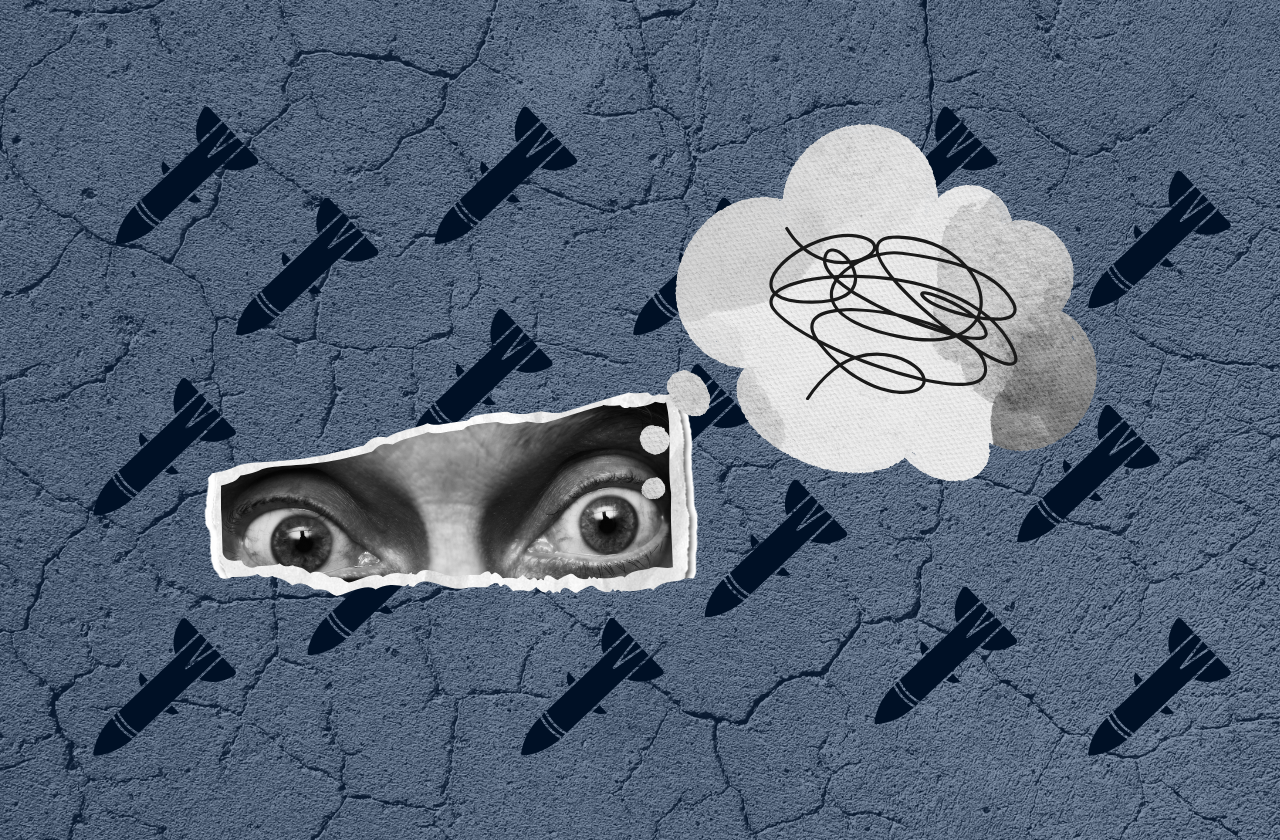
Post-traumatic stress disorder (PTSD) —
this is a chronic mental disorder, which can develop after a traumatic event (source – Ministry of Health).
A psychologist answers common questions about PTSD CETA Ukraine Eugene Likarchuk.

Eugene Likarchuk
consultant and supervisor of SETA Ukraine, psychologist, psychotherapist
1. WHO MAY HAVE POST-TRAUMATIC STRESS DISORDER?
These are people, who directly experienced the trauma or witnessed the situation, in which other persons were threatened. Often these are people, who had experienced death threats, threat of serious injury, experience or threat of sexual violence, in general, the threat of loss of physical integrity. There are also situations, when individuals received notification of a traumatic event, that happened to close family members or friends, especially, in heavy detail.
2. HOW IT APPEARS PTSD?
1 .Intrusions – repeated experiences of traumatic experiences, which cause a persistent stress reaction.
2. Constantly and diligently avoiding reminders of the trauma: smells, some threatening silhouettes, certain places or people, thoughts, memories, images, related to a traumatic event.
3. A person can be hyper controlling, easily irritated, or, vice versa, freezes.
4. Changing views over oneself, the world, people in the negative side: “She's bad”, “No one in the world can be trusted”, etc..
3. I have these symptoms. So I have PTSD?
If you have several of these symptoms, It is worth contacting a specialist. After all, such a disorder causes severe stress, Violation in the social and professional sphere. The diagnosis of PTSD can make a psychiatrist. It is important to understand, What about PTSD is then referred to, When the described symptoms last more than a month.
4. As the Seth's program works with Post -traumatic stress disorder?
In Seth approach we use the therapeutic component of "discussing heavy memories". Customer step by step returns to these memories, while memories will cause less stress. Seth experts know, How to support the client.
Do not believe, that it will pass by itself. It's like a wound, which must be processed, to work out. I advise you to consult a specialist, What are psychotravatrabes, which are trained in these techniques, and can correctly this injury to work out and help get out of it. What is in the Seth's program, Of course, there are.
5. Can you cure Post -traumatic stress disorder Antidepressants?
Antidepressants can help reduce symptoms, When, example, Man can't even get out of the room or someone call, or generally start psychotherapy. These drugs emotionally stabilize a person. But, Of course, Memories cannot be treated with antidepressants. Therefore, it is important to work with a psychotherapist.
6. What to do, If a loved one Post -traumatic stress disorder?
A person's loved one, which is experiencing the symptoms of PTSD, It is important to get acquainted with the information: How to treat it, How to understand it, and how can a person be supported and not force her to “take herself in hand”.

ABOUT THE CETA UKRAINE PROGRAM:
CETA – program of free psychological assistance to the population of Ukraine. Implemented by the NGO "Words Help" with the support of the USAID project "Building a Sustainable Public Health System", which is implemented by the Pact organization.













